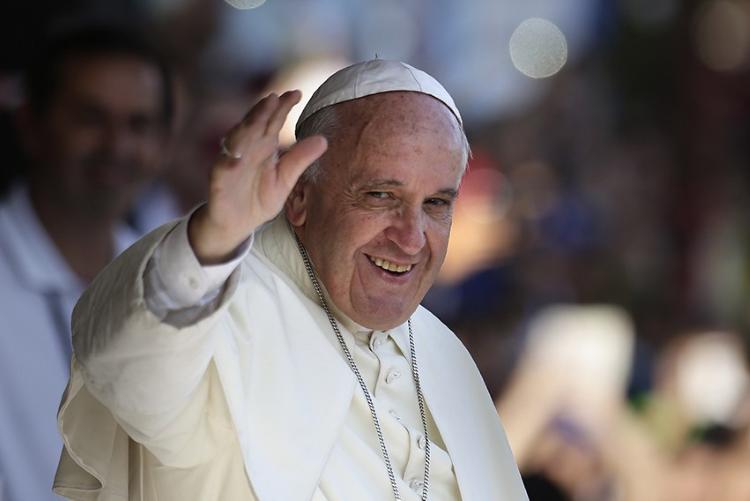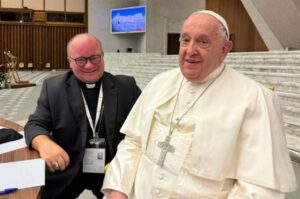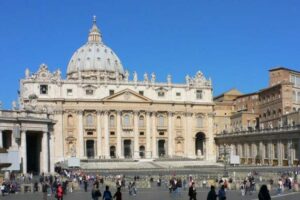
By the time Pope Francis breathed his last on Easter Monday, he had already written himself into the conscience of the 21st century—not as a dogmatic theologian cloistered within Vatican walls, but as a tireless reformer who reimagined the papacy for a broken world. For 12 years, the first Latin American and Jesuit pope in the Church’s 2,000-year history took the ancient institution to the peripheries—both literal and metaphorical—and confronted crises that most world leaders tiptoed around.
Whether the subject was immigration, climate change, populism, sexual abuse, or inequality, Francis was unflinching. It is now clear: Pope Francis was not merely a religious figure; he was a political actor of uncommon moral authority. And yes, a radical one.
It is easy to misread Francis as a contradiction. He retained the Church’s traditional line on abortion, yet pushed the door open for blessings for same-sex couples. He upheld celibacy for priests, but expanded roles for women in Vatican bureaucracy. He respected Church teachings, but continually questioned their pastoral applications. To his conservative critics, this made him doctrinally slippery; to his admirers, it made him profoundly Christlike.
READ I To fix the US trade deficit, fix the fundamentals
A papacy rooted in the margins
One cannot speak of Pope Francis without invoking his unique Latin American identity and Jesuit formation. Raised in Argentina under a military dictatorship and shaped by the “theology of the people” (a pastoral offshoot of liberation theology), he understood that theology without empathy was lifeless, and orthodoxy without justice was empty. It is from this wellspring that his four Bergoglian priorities emerged: “Time is greater than space,” “Unity prevails over conflict,” “Reality is more important than ideas,” and “The whole is greater than the part.” These axioms were not abstract. They animated every papal pronouncement, every diplomatic initiative, and every act of radical humility.

This was no ordinary pope. The decision to live in a modest guesthouse instead of the Apostolic Palace, to wear simple robes, and to make phone calls to grieving widows and imprisoned inmates, were not media stunts—they were deliberate theological acts. When Francis washed the feet of Muslim refugees and prisoners, he wasn’t diluting tradition; he was intensifying it.
The marginalised were always at the centre of his pontificate. His first trip as pope was to the Italian island of Lampedusa, a migration flashpoint in the Mediterranean, where he stood before the wreckage of refugee boats and mourned the “globalisation of indifference.” In 2016, he flew to the Greek island of Lesbos and returned with Syrian refugee families. In St. Peter’s Square today stands a bronze sculpture of migrants, added under his watch—the first monument in 400 years to grace the plaza. If moral power has a geography, Francis relocated it.
A moral compass in a world off course
He also redefined what Vatican diplomacy means. While his predecessors spoke of peace in generalities, Pope Francis made peace personal. He helped broker the thaw in US–Cuba relations, navigated a controversial deal with China on bishop appointments, and dispatched peace envoys to Ukraine, Moscow, and Washington. His encyclical Fratelli Tutti—a manifesto against xenophobia, populism, and war—asserted that “every war leaves our world worse than it was before.” His message to global leaders: dialogue is not a sign of weakness, but of courage.
Critics say he fell short on reforming the Church’s handling of sexual abuse. Survivors’ groups lament that despite symbolic gestures and legal changes, justice was slow, inconsistent, and at times reluctant. Here, Pope Francis’s legacy remains contested—an honest admission that radical reform collides with institutional inertia. Yet, few can deny that he moved the Church further than many of his predecessors dared.

He was never afraid to confront powerful nations. He lambasted Donald Trump’s immigration policies, calling walls “un-Christian.” He warned of a “Third World War fought piecemeal” in Syria and Ukraine, and insisted that weapons manufacturing was not an economic opportunity, but a moral disgrace. At the G7 summit in 2024, even while ailing, he delivered a searing address on the ethical implications of artificial intelligence, reminding the world that “progress without morality leads to ruin.”
His encyclical Laudato Si’, grounded in both science and Scripture, shifted the Church’s climate position from theological footnote to moral imperative. Scholars credit it with helping build momentum toward the 2015 Paris Agreement. In this, Francis arguably wielded more influence than any single head of state. Not because he commanded an army, but because he commanded a conscience.
Pope Francis: A leader who walked with the wounded
And yet, for all his boldness, Francis knew when to listen. The synodal process he championed was not a Vatican talking shop but an experiment in ecclesiastical democracy. It asked Catholics around the world—clergy and lay, women and men—to walk together in discernment. That Francis allowed this process to challenge traditional hierarchies was itself revolutionary. As one theologian put it, “He was the first pope to ask what the people of God actually think.”
Indeed, he wasn’t interested in the binary of “liberal” or “conservative.” He wanted the Church to return to the Gospel. That meant proximity to the poor, compassion for the outcast, and solidarity with the suffering. It also meant a deep discomfort for those who preferred a church of purity over a church of mercy.
Francis’s death leaves the world poorer for the loss of its clearest moral voice. In an age of rising authoritarianism, climate catastrophe, digital disinformation, and widening inequality, he reminded us that empathy, humility, and dialogue are not political strategies but existential necessities.
His greatest contribution may be that he changed the papacy from a position of doctrinal rigidity to one of prophetic witness. He did not claim to have all the answers. Instead, he invited the Church—and the world—to ask better questions. Questions like: Who is missing from the table? Whose voice is unheard? What kind of world are we building, and for whom?
In this, Pope Francis did what all true reformers do: he made people uncomfortable. And in that discomfort, he made the world a better place.
